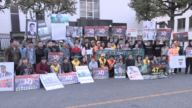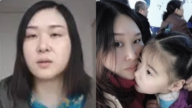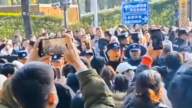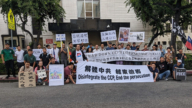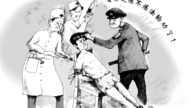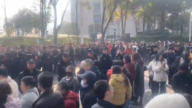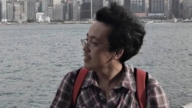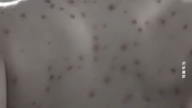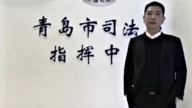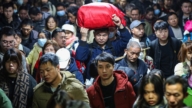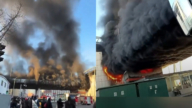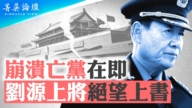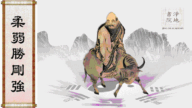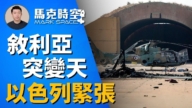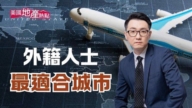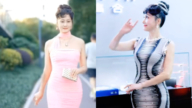【新唐人2015年2月16日讯】“寻衅滋事罪”、“煽动民族仇恨罪”、“颠覆国家政权罪”、“聚众扰乱社会治安罪”、“利用邪教组织破坏法律实施罪”等等、等等,这些罪名指控的对像,很难想象竟然是律师的群体。然而,这正是中国维权律师所面临的现状。因为代理所谓的“敏感”案件,有越来越多的维权律师被冠以上述罪名拘捕或者判刑,请看一下报导。
据香港《中国维权律师关注组》最新统计数据显示,大陆维权律师在2014年间被刑事起诉和无法执业的人数达到13人,是2013年的4倍。
调查显示,这些律师无一例外是因为代理所谓“敏感案件”而遭到司法局各种手段的打压。
深圳律师范标文:“一是办理敏感案件,第二是我们在法庭上指责司法机关或者是公诉机关的违法行为,或者是在法庭上指出审判员违法审判的情形,这方面得罪了官方。”
虽然到目前为止,大陆没有任何法律条文对所谓“敏感案件”作出明确规定。但“敏感案件”四个字却一直是中国律师界不敢碰触的雷区。禁止代理“敏感案件”成了所有律师事务所不成文的规定。
广东律师王全平:“司法局会这样子控制,叫这个律师所,如果这个案件不准律师代理,它就不出这个手续,从这个方面已经阻止律师去代理那些维权案件,有大部分是这个情况。你没有所函,没有律师所的介绍信,你就无法去办那些维权案件。”
据大陆各地司法部门下达的《关于律师代理敏感案件管理意见》显示,几乎所有关乎社会民生,容易引发民愤的案件,尤其是群体性事件,全部被纳入“敏感”范围。如涉及房屋拆迁、土地征用、下岗安置、欠薪、工伤赔偿、基层民主选举、司法部门执法不公以及政府部门违法侵害群众利益等案件。
此外,还有某些案件被命令禁止代理,如法轮功案、宗教信仰案、已经被新闻媒体跟踪报导的案件、涉黑群体性案件和重大人员伤亡案件等。
上述各类“敏感”案件被禁止代理的原因是,它们危害了“国家安全”和“党的执政地位”。
王全平:“这些敏感案件都是政府它们当局自己定的。什么叫‘敏感’案件呢?全世界都没有这个说法的!哪个国家有‘敏感’案件的说法?都是依法办案。你政府说这个案件敏感,凭什么定的是‘敏感’?不就是政府官员违法乱纪吗?你怕这些腐败事情曝光。”
中共司法部部长吴爱英曾在2009年公开指示,律师在代理“敏感”案件时,要“讲政治、顾大局”、“坚持党的领导”、“维护党的执政地位”。此外为了进一步“监督”律师工作,当局还对全国所有无党员律师事务所,驻派了中共指导员和联络员。
在党的“指导”和“监督”下,很多律师陷入了“为民维权”还是“为党说话”的矛盾当中,要“饭碗”还是要“良心”,成了很多维权律师不得不面对的选择题。
不过,有这样一群律师,最终坚持了律师的职业操守,选择了为民说话,坚持代理“敏感”案件,因此他们也遭到了当局强烈打压。
王全平:“一个是利用刑事措施,一个用刑事拘留的手段,这是在刑事方面。另外在行政方面,利用司法局造成维权律师不能够年审,失去执业证。因为司法局打压,律师所就不敢接收,因为有个管理规定,超过6个月没有律师所接收,你的律师证就要注销。这种状况是司法局打压律师最常用的手段。”
尽管当局高喊“依法治国”,但如今大陆律师的处境却越来越恶劣,已经由从前的吊销执照、限制年审等打压整肃,上升到现在的拘捕、非法关押、刑事指控、甚至施暴、酷刑等迫害手段。
王全平:“政府跟政府工作人员如果不违法的话,怎么会有律师维权呢?周永康在主政政法系统的十多年期间,可以说坏事做尽,侵犯了很多公民的权利。律师维权等于是跟那些腐败分子做斗争。他们利用权力就只能打压,就形成了这种对抗。”
2014年因遭受当局迫害打压而无法执业的13名律师,分别是程海、王全平、浦志强、常伯阳、姬来松、刘士辉、许志永、丁家喜、唐荆陵、余文生、屈振红、夏霖、蔡瑛。他们中至今有很多人仍然被关押,期待社会关注。
采访编辑/张天宇 后制/舒灿
The Tough Road Chinese Lawyers Are Facing: Sensitive Cases
“Crime of picking quarrels and provoking troubles",
" inciting racial hatred", " inciting to subvert state power",
“assembling a crowd to disturb social order", “sabotaging legal
enforcement by organizing and using evil religion" ……
It is hard to believe these are the charges against
many Chinese lawyers.
This is what the rights defending Chinese lawyers are faced with.
The so-called “sensitive cases" have lawyers, one after another,
been charged and even sentenced with the above mentioned crimes.
According to the latest data of Hong Kong’s China Human
Rights Lawyers Concern Group, there were 13 Chinese rights
defending attorneys either charged with crimes or had their
licenses terminated in 2014, four times that in 2013.
Data show that these lawyers are, without exception,
suppressed by the Bureau of Justice for handling
“sensitive cases."
Shenzhen lawyer Fan Biaowen: “First, it is the handling
of sensitive cases, and second is when we offended
the authorities by condemning in court the illegal conduct
of the judiciary system, the public prosecutor, or the judge."
been no legal provisions on “sensitive cases".
But sensitive cases have been a minefield in the legal system
for the Chinese lawyers.
“No sensitive cases" has been an unwritten rule
in Mainland law firms.
Guangdong lawyer Wang Quanping: “This is how the Bureau
of Justice controls this type of case.
The Bureau of Justice will ask a law firm not to grant
the procedure so that lawyers can not proceed with the cases.
Therefore, without a letter of recommendation from the firm,
lawyers won’t be able to take the cases."
According to the management advice on lawyers handling
sensitive cases from each local judiciary organ,
sensitive cases cover nearly all social issues related
to public anger.
Mass incidents are entirely categorized as sensitive cases.
They include house eviction and demolition, land acquisition,
resettlement of laid-off workers, wage arrears, work related
injury compensation, grassroots democratic elections,
law enforcement injustice, violation of people’s interests
by the public sector and the like.
There are also certain cases particularly ordered to be
prohibited in the firm, such as the Falun Gong, religion,
cases followed-up by media, mass incidents involving triads,
and cases involving large numbers of casualties.
These types of sensitive cases are banned because they pose
risks to “national security" and “the party’s ruling status."
Wang Quanping: “These sensitive cases are defined
by the authorities themselves.
There is no such a thing as a sensitive case throughout the world.
What is sensitive?
All should be handled according to law.
The officials claim the case as being sensitive.
On what grounds is it defined as sensitive?
Isn’t it the officials being lawless?
They are afraid of being exposed."
Justice Minister Wu Aiying openly instructed in 2009
that when handling sensitive cases, lawyers should be
“politically minding the overall situation", “to uphold
the party’s leadership" and “to safeguard the party’s ruling status."
In order to further “oversee" lawyers, the authorities station
an instructor or liaison in law firms that lack party members.
In the party’s “guidance" and “supervision",
many lawyers are faced with the dilemma of
“people rights" vs. “on behalf of the party."
The rights defending lawyers are constantly faced
with the choice between “job" and “conscience".
However, there is a group of lawyers ultimately upholding
the ethics of their profession.
They insist on speaking for the people in “sensitive" cases.
Sure enough, they are also strongly suppressed by the authorities.
Wang Quanping: “One is to manipulate criminal detention
to penalize the lawyers.
The other is to manipulate the administration so that lawyers
would lose their license by failing the annual assessment.
This suppression from the judicial organ forces the law firm
to reject such cases.
The regulation has it, without a law firm for six months
automatically terminates the license of the lawyer.
This is the most commonly used tactic to suppress lawyers."
Although the authorities claim the “rule of law",
the situation has become increasingly harsh for the lawyers.
They are faced with licenses being revoked, annual assessment
being prohibited, arrest, illegal detention, criminal charges,
and even violence and torture.
Wang Quanping: “With law abiding government and officials,
why would lawyers go for rights defending?
Zhou Yongkang has gone to the extreme in his ten years of
heading the political and legal system.
Many Chinese have been violated of their rights.
The rights defending lawyers have been fighting against
those corrupt elements, who manipulate their power to suppress.
That’s the confrontation."
The 13 lawyers who have been suppressed and lost their rights
to practice in 2014 are: Cheng Hai, Wang Quanping, Pu Zhiqiang,
Chang Boyang, Ji Laisong, Liu Shihui, Xu Zhiyong, Ding Jiaxi,
Tang Jingling, Yu Wensheng, Qu Zhenhong, Xia Lin, Cai Ying.
Many of them are still being held and waiting for public concern.
Interview & Edit/Zhang Tianyu Post-Production/ShuCan


